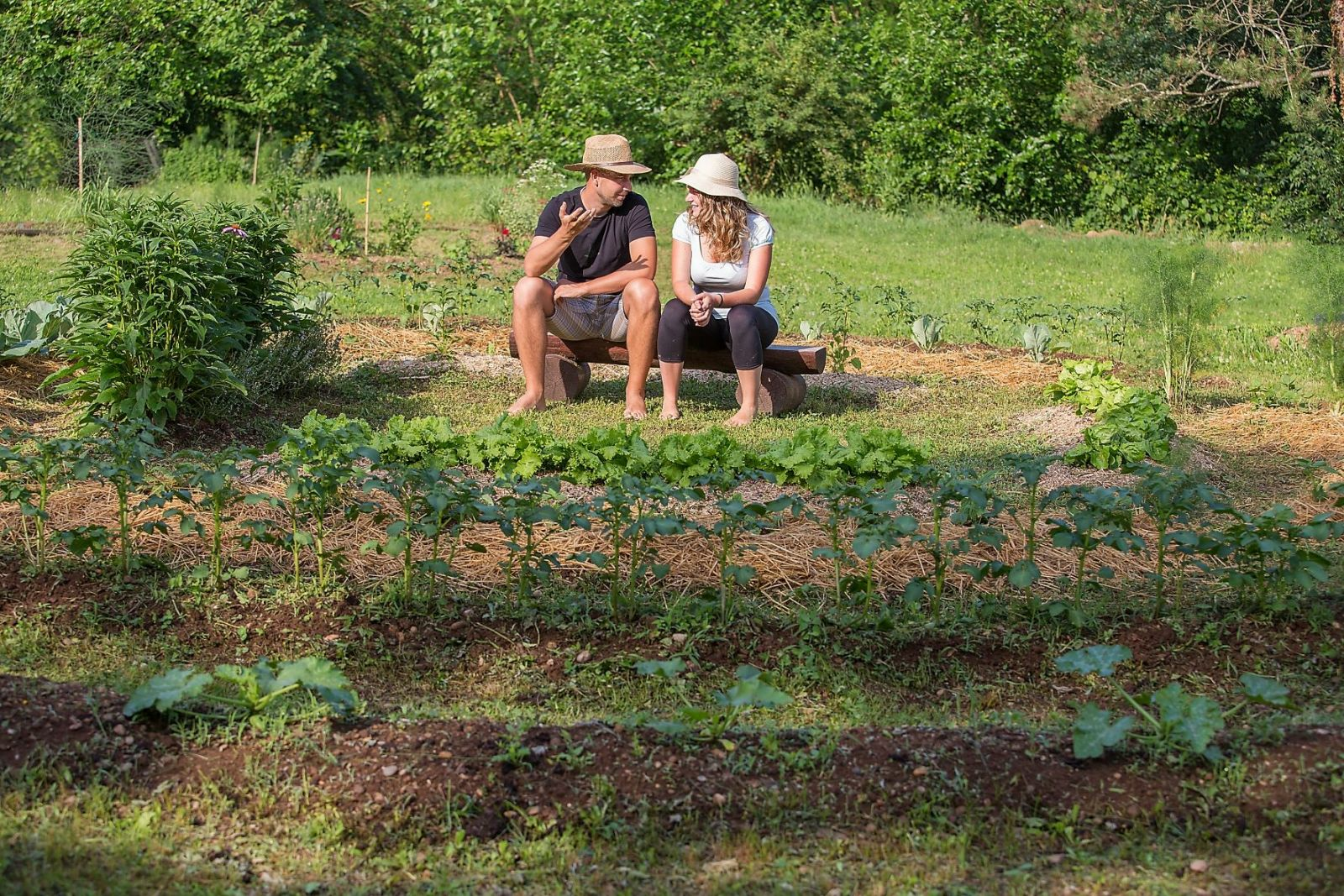
Gardening makes you happy - 9 reasons why you should garden
One thing is clear: fresh fruit and vegetables simply taste great. But did you also know that gardening can improve your physical and mental health or that you are contributing to the preservation of species? In this article, we'll show you why gardening makes you and the ecosystem happy.
This Article Contains:
- Gardening strengthens the cardiovascular system: calorie consumption through gardening
- Garden therapy: gardening can alleviate depression and anxiety
- Wellness in the garden: gardening improves quality of life
- Gardening helps to preserve "old varieties"
- Gardening helps to protect species
- Community gardens and the like - gardening creates social contacts and promotes a sense of community
- Harvest your own fruit and vegetables!
- Gardening makes for a healthier diet
- Gardening with children: Positive effects for young and old
Gardening strengthens the cardiovascular system: calorie consumption through gardening
Depending on the activity, gardening is like a mild cardio workout. Gardening can burn between 100 and 500 kilocalories per hour. Exercise while weeding, planting seedlings or trimming hedges strengthens the cardiovascular system, which in turn reduces the risk of high blood pressure, cardiac arrhythmia or other cardiovascular diseases. According to an Australian study (1), these effects were particularly noticeable in older or female people. So: If you work in the garden several times a week instead of going to the gym or jogging, you will not only stay fit, but you will also get delicious, fresh vegetables at the same time.
Garden therapy: gardening can alleviate depression and anxiety
According to a meta-study (2), gardening can even help with anxiety and depression. Other studies show that, in general, daily contact with nature can help with these conditions. Since gardening is one of the most popular ways to interact with nature, gardening offers great potential to reduce symptoms of depression or anxiety. The study showed that gardening reduced stress as well as fatigue or anger in the subjects. Gardening can therefore have a therapeutic effect.
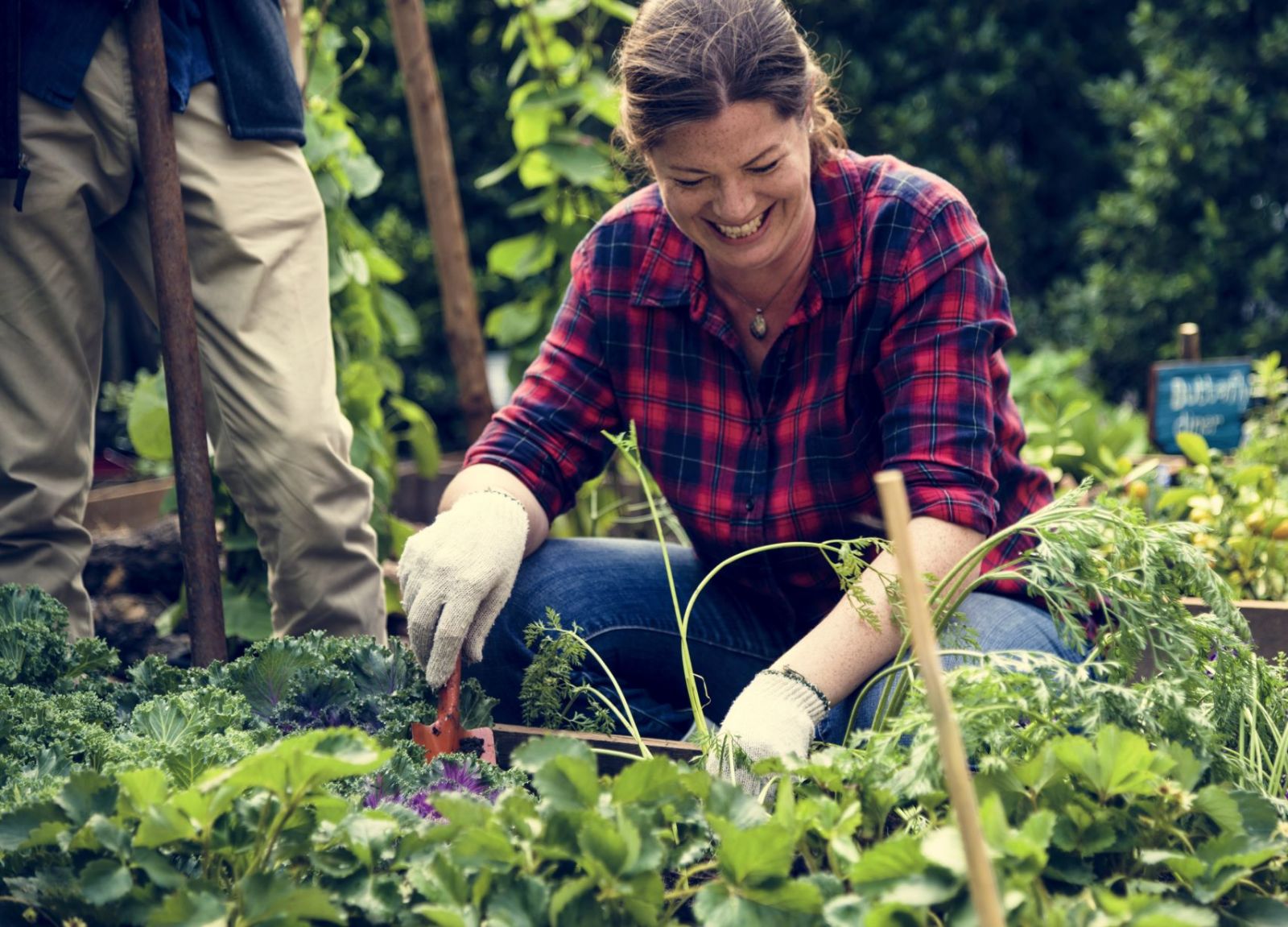
Wellness in the garden: gardening improves quality of life
According to the aforementioned meta-study, gardening can even improve quality of life. Personally, I find this plausible: you do something meaningful outside and, with a little knowledge or luck, you also get a bountiful harvest. After all, it's really nice to be able to harvest the fruits of your labor at the end of the day. This is always a small sense of achievement and reinforces your self-efficacy. We often have jobs where you don't get any tangible results, just numbers on paper. It's really something special when you can hold your (harvest) successes in your hands for a change.
Gardening helps to preserve "old varieties"
Yes, that's right: if you garden, you can even help to preserve old fruit and vegetable varieties. This is really important because old varieties often contain genes that can help with the breeding of new, resistant varieties. This makes it possible to use the "old" genetic material to breed varieties that are better able to withstand pests, diseases or climate change. Find out more in our article on old varieties.
Gardening helps to protect species
Not only can old vegetable varieties be preserved through gardening, many animal and plant species can also find shelter in your garden. You've probably already noticed: We are currently in the midst of a huge species extinction. Not only insects are affected, but also some bird and plant species. It is not only the use of pesticides that plays a role here, but also the development of natural areas and inbreeding within individual populations because their habitats are separated from other populations (for example by cities).
You can help with the last point in particular, the demarcation of biotopes! Imagine a city as a barrier of stone and concrete in which many birds and insects find neither food nor a place to live or hibernate. Plants have no place to germinate and no suitable conditions to grow. If a few people were to create small, near-natural gardens throughout the city, this could create a "road" for animals and plants through the city. In this way, species on one side of the city could come into contact with species on the other side of the city and their habitats would be reconnected. So be sure to leave a small space in your garden where there is a bit of "wilderness". You can do this by planting bird- and insect-friendly shrubs or creating a pile of dead wood, for example. You can also sow insect-friendly flower mixtures in or around your flower beds. These measures may even attract beneficial insects!
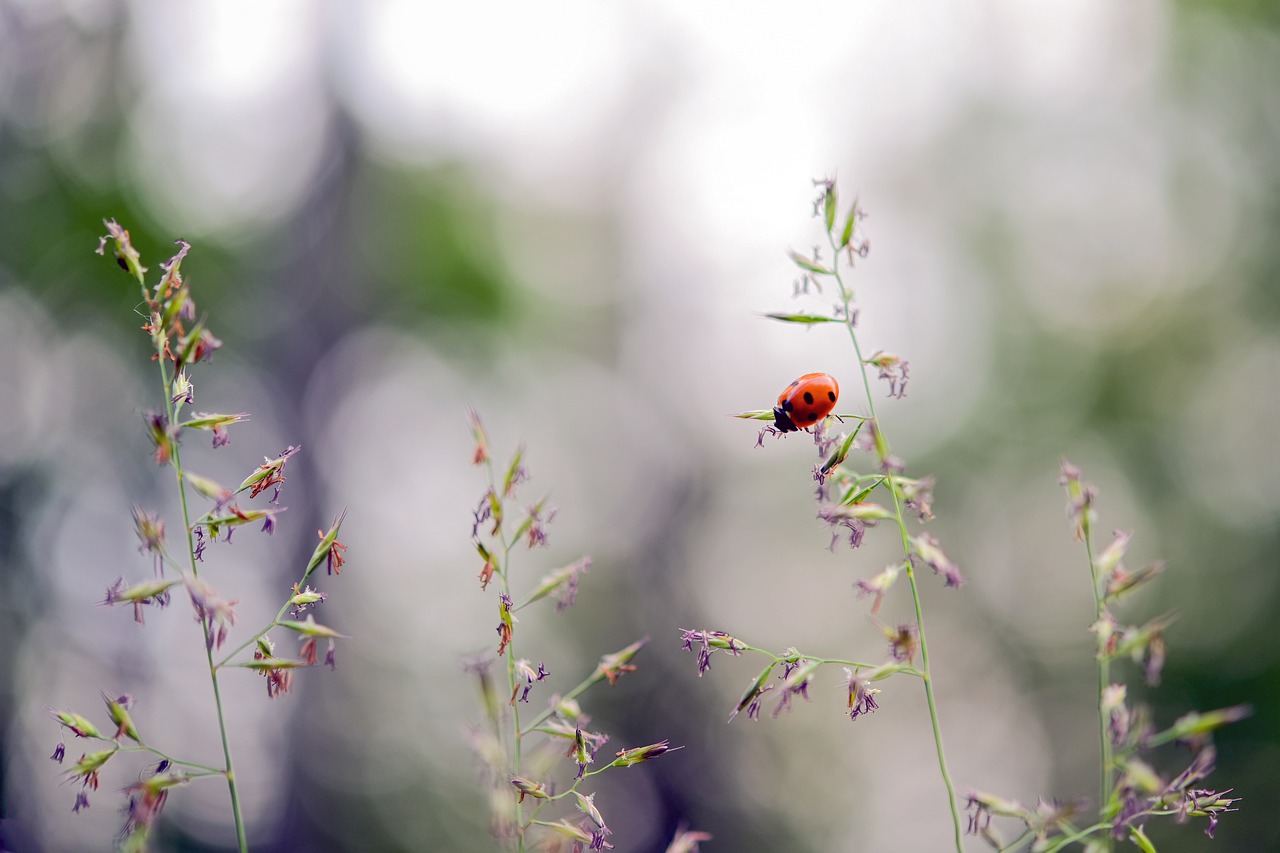
Community gardens and the like - gardening creates social contacts and promotes a sense of community
Community gardens are totally practical if you don't have your own garden. They also create opportunities for social interaction and, according to a meta-study (2), promote a sense of community. Perhaps this is also the reason why more and more urban gardening projects are being launched in "anonymous" cities. But community gardens are not the only way to create a sense of community. The exchange with gardening relatives, friends or neighbors can also generate feelings of happiness. Through this social exchange with a gardening community, old gardening knowledge is also passed on and thus preserved. This is not only helpful for new gardeners, but can also give "old hands" the good feeling of passing on knowledge. New things can be tried out together and the joy of success shared.
If you're looking for a gardening community like this, why not try our Fryd app? Here you can ask the community of experienced gardeners for help or get great tips for your garden. New articles also provide weekly inspiration for your garden bed.
Harvest your own fruit and vegetables!
Harvesting your own fruit and vegetables is a thousand times more satisfying than buying all your food from the supermarket. Not only does this increase your appreciation of food, but it can even save you money. After all, regional organic vegetables can be quite expensive. What's more, home-grown food tastes three times as delicious as store-bought food.
Gardening makes for a healthier diet
Other meta-studies (3) found that gardening can even improve dietary habits. It was shown that gardening students ate more vegetables than their non-gardening peers. It is possible that this result can also be transferred to adults. After all, gardening not only enables a more conscious approach to food, but also provides access to freshly grown vegetables.
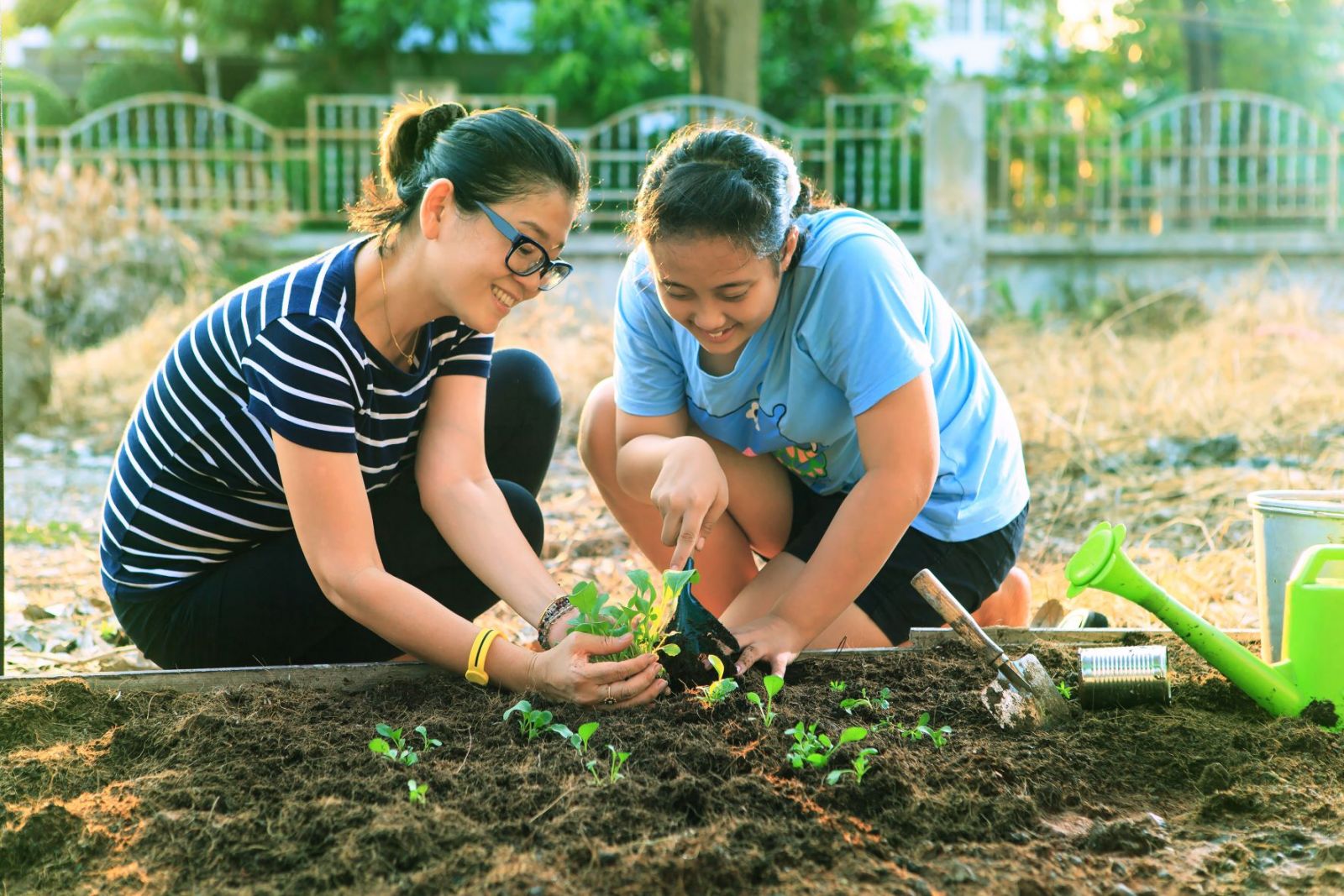
Gardening with children: Positive effects for young and old
As already mentioned, gardening at a young age can create a healthier approach to nutrition and food. It can also encourage fine motor skills and creativity. Gardening with children is also a great way to spend time together, with the positive side effect of being outside at the same time. This can develop a positive relationship with nature from an early age. In addition, a sense of achievement can be achieved during the harvest, which ultimately brings joy to all age groups. Get ideas for joint gardening projects in our article on gardening with children.
I hope I was able to convince you to start gardening! If you have any questions or comments, please write to us at [email protected].
Would you like to receive helpful gardening tips all year round and plan your own beds in the best possible way? Then register here or download the Fryd app for Android or iOS.
Fryd - your digital bed planner
Quellen:
(1) = Kingsley, J., Hadgraft, N., Owen, N., Sugiyama, T., Dunstan, D. W., & Chandrabose, M. (2022). Associations of Vigorous Gardening With Cardiometabolic Risk Markers for Middle-Aged and Older Adults, Journal of Aging and Physical Activity, Volume 30(3), S. 466-472.
(2) = Soga, M., Gaston, K. J., Yamaura, Y. (2017). Gardening is beneficial for health: A meta-analysis, Preventive Medicine Reports, Volume 5, S. 92-99.
(3) = Langellotto, G. A., Gupta, A. (2012). Gardening Increases Vegetable Consumption in School-aged Children: A Meta-analytical Synthesis, HortTechnology, Volume 22(4), S. 430-445.

Isabell
Isabell studies agricultural sciences and loves to be surprised by nature and its complexity again and again. Herbs - whether gathered wild or in the garden - are her passion.
Learn MoreCurrent Topics in the Community
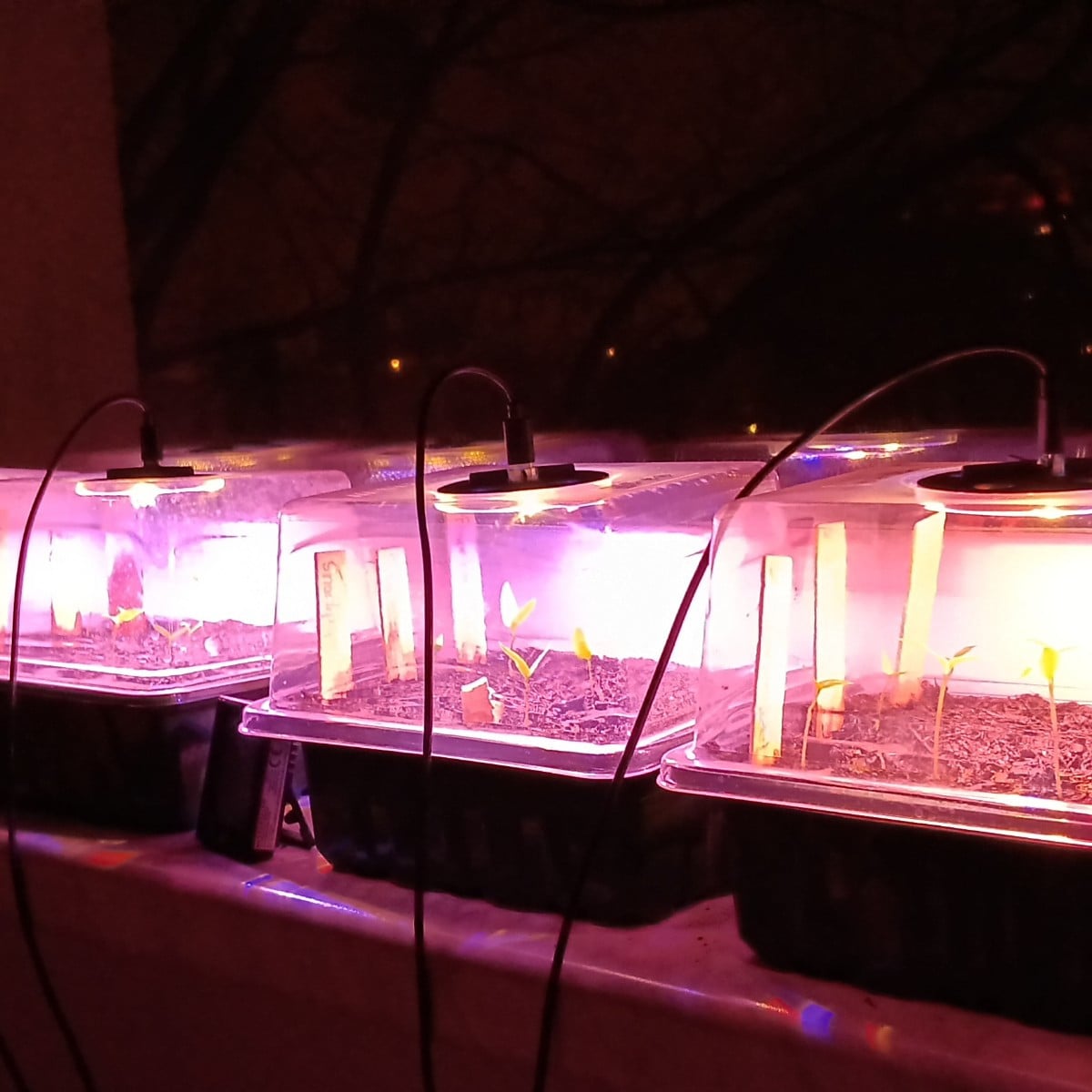
Liked 1 times
It's so green...! ☺️☺️ Some are still struggling to break through the soil. Unfortunately, the snack peppers and Ingrid peppers haven't arrived yet. Otherwise, at least one plant of each variety (Habanero Hungarian) and up to four other plants have arrived. 👍👍👍
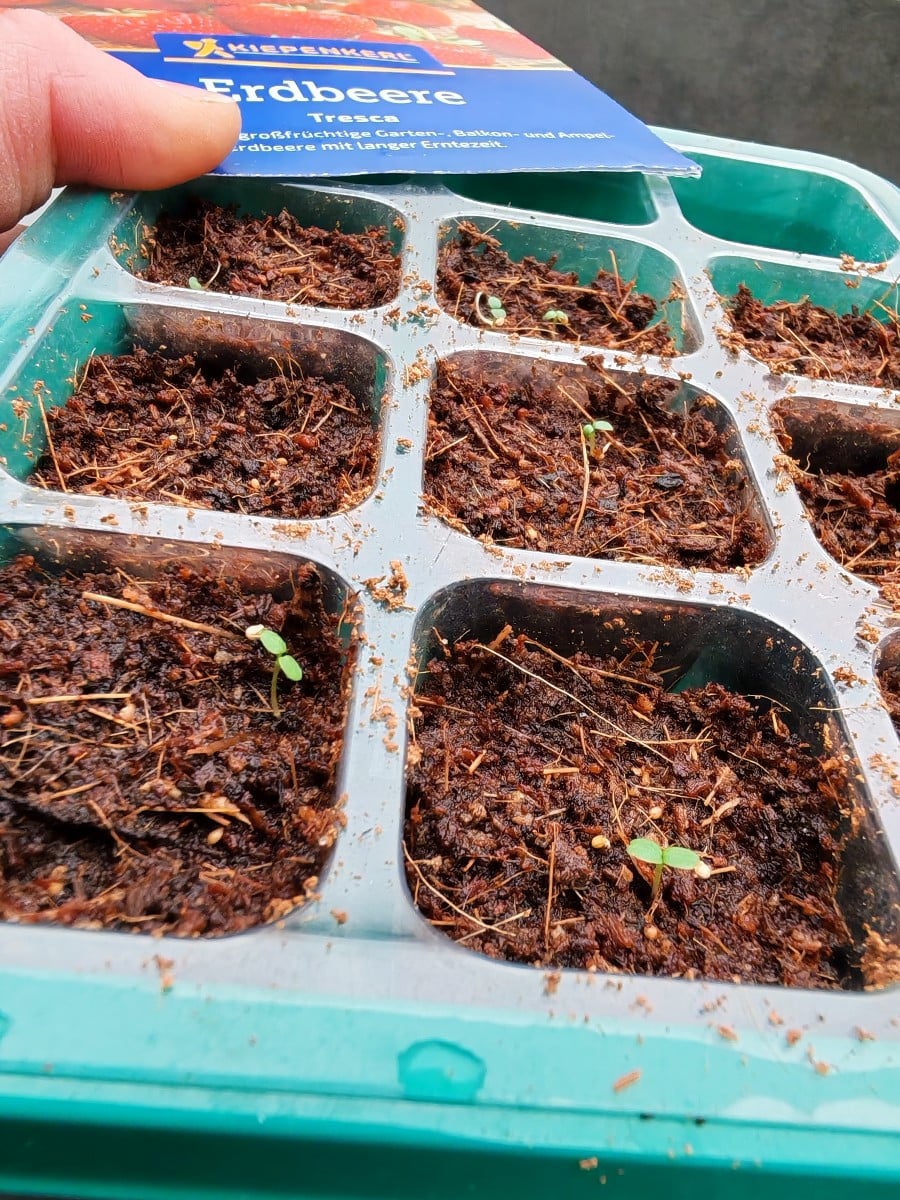
Liked 3 times
OMG, the strawberries are so small 🍓 Will we still be able to harvest fruit this year?
Show 1 answerLiked 5 times
Now the order with Rühlemann is still out! After raiding two garden centers in England, I still needed some more special items! - Spice fennel - Garlic mustard - Giant goosefoot - Perilla (Schiso) - Italian parsley - Red Genovese basil - Greek mountain tea - Wild celery - Red and orange marjoram I hope that some of these will spread wildly in the garden. Garlic mustard is my favorite wild herb, for example in pesto with roasted hazelnuts—delicious!
Show 7 answersPopular Articles
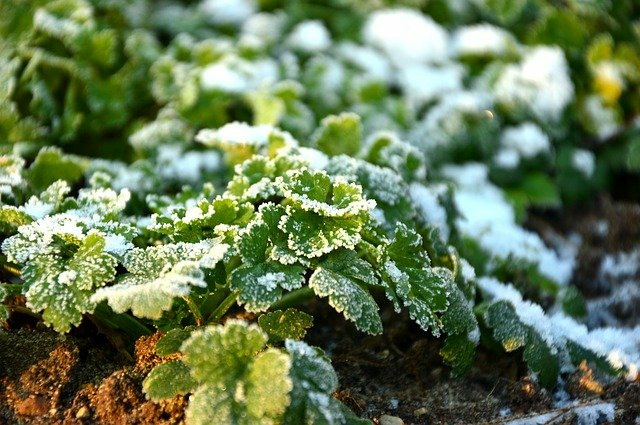
Overwintering Parsley: How to Do It Successfully
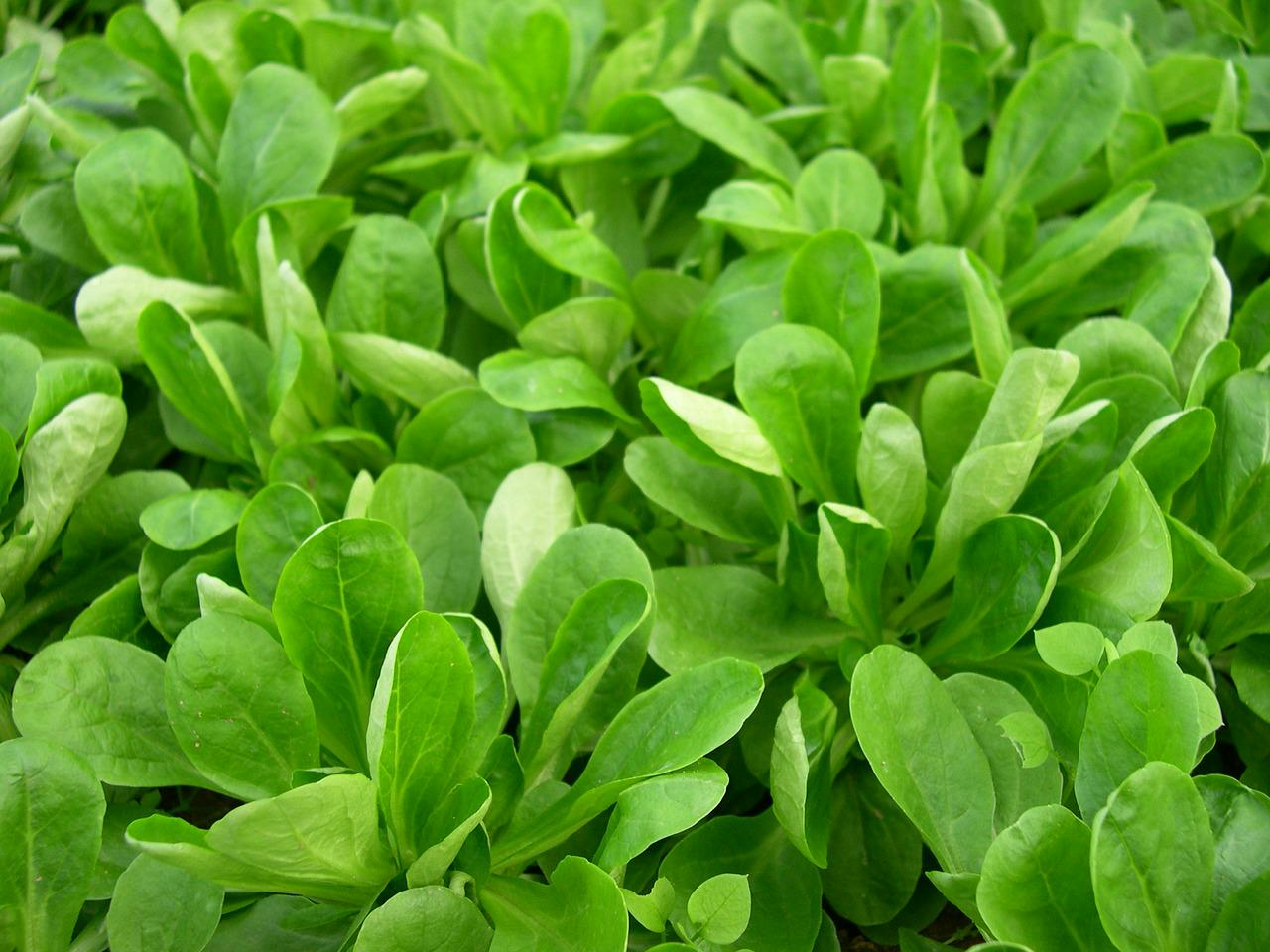
How to Grow Lettuce in Winter: Varieties, Sowing, Harvesting

Growing Sage Plant: Tips for Sowing and Harvesting
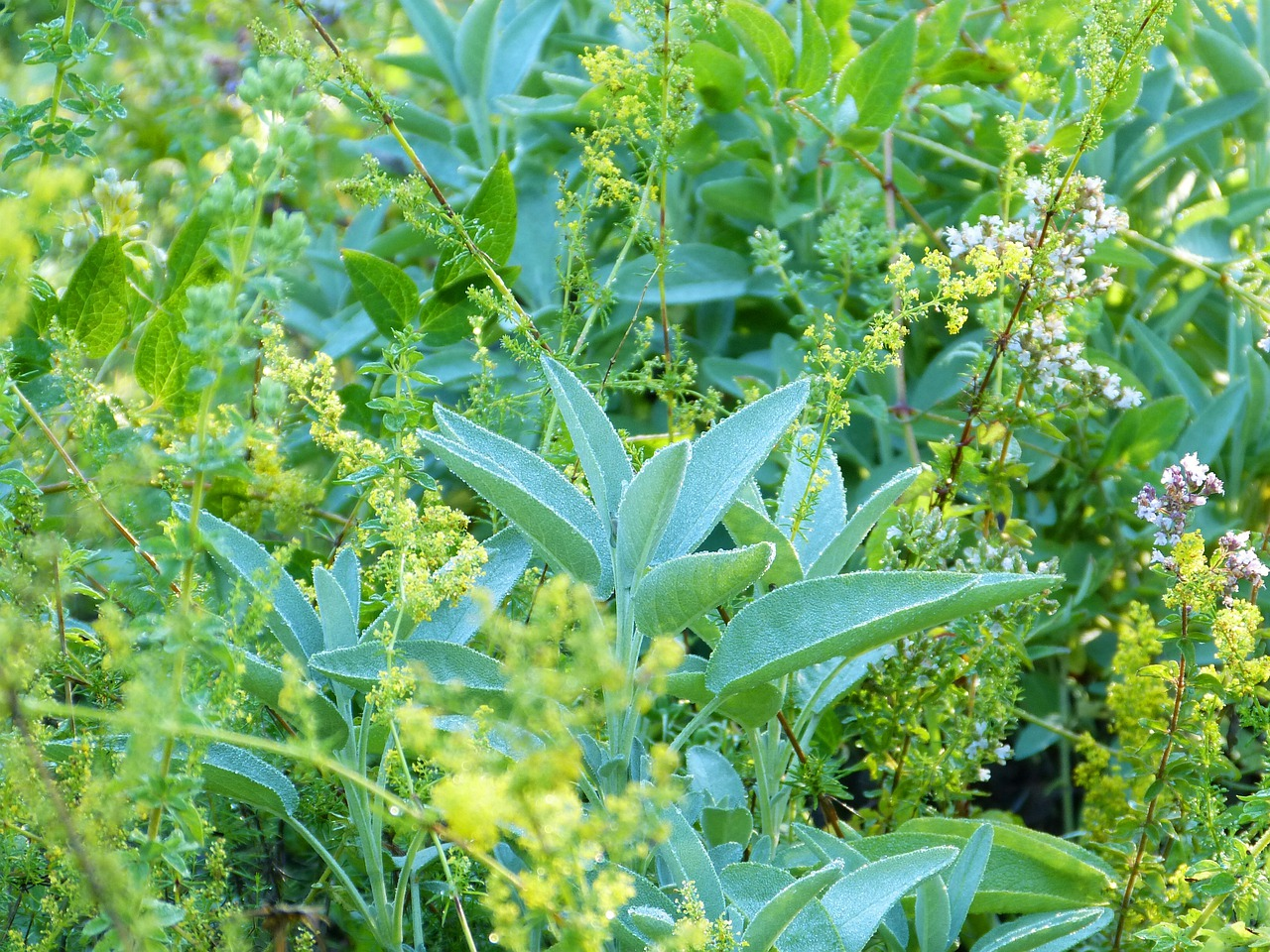
What Herbs Can Be Planted Together?
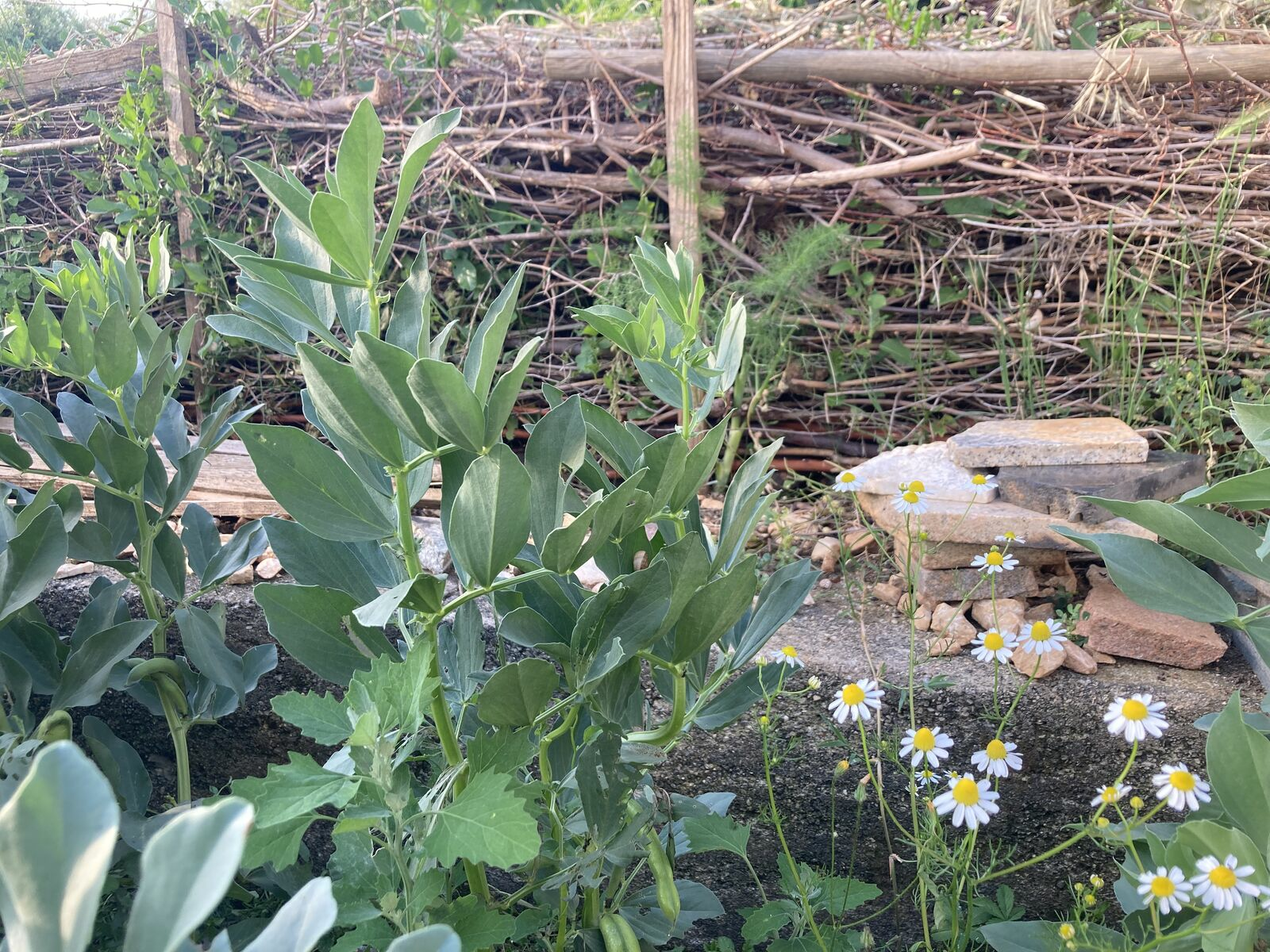
Create & Design a Permaculture Garden
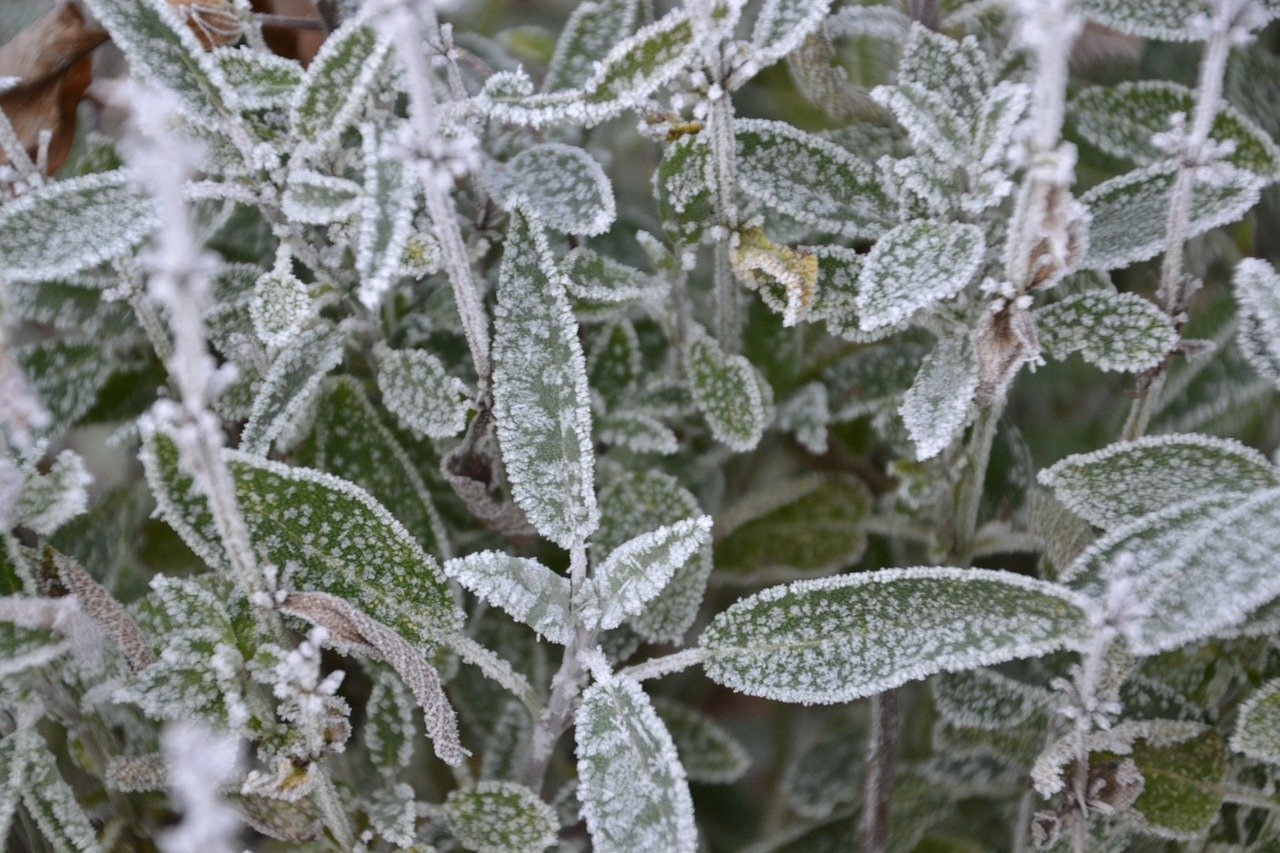
Overwintering Plants: Tubs, Pots and Raised Beds

Pruning, Fertilizing & Propagating Currants: Care Tips
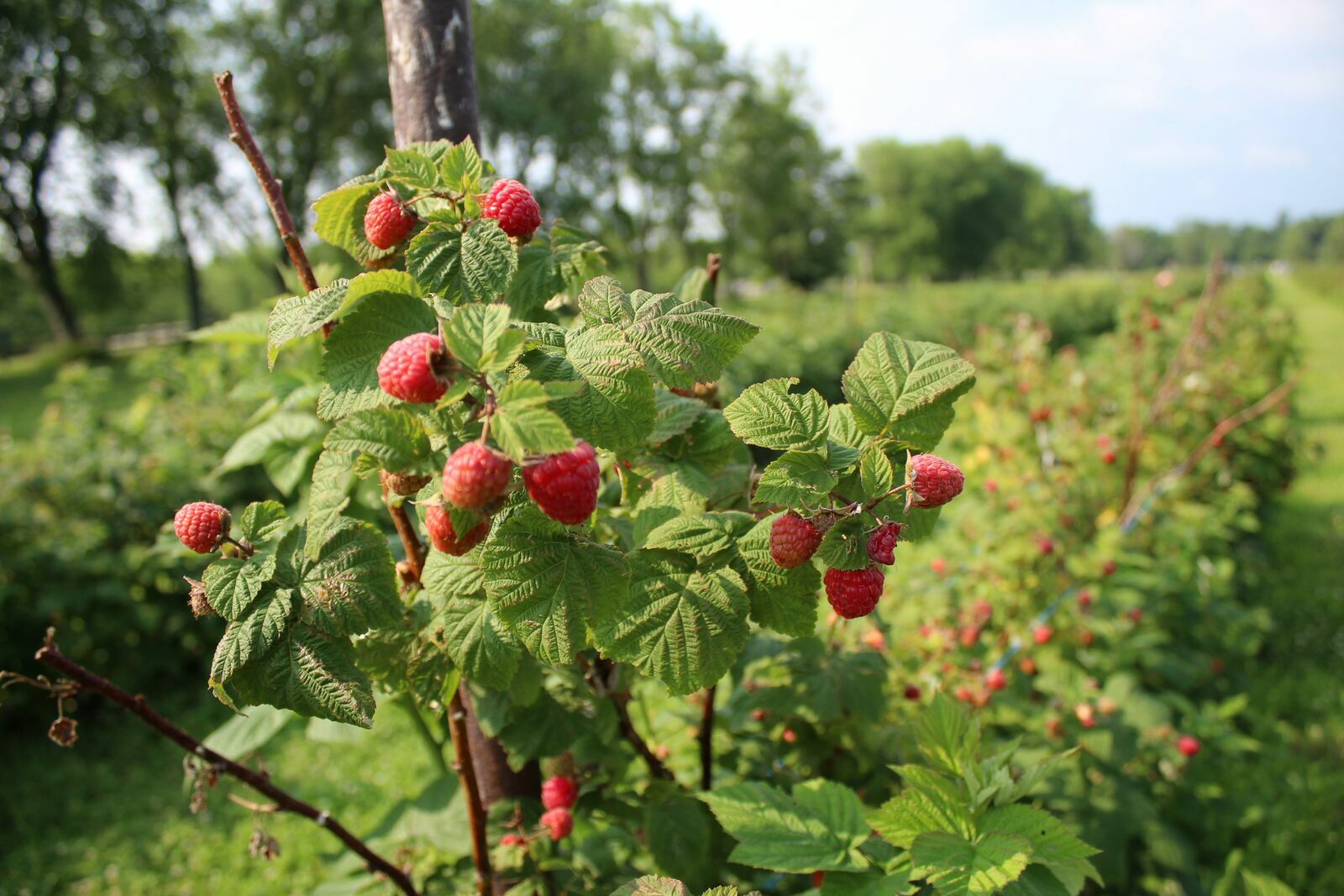
Pruning Raspberries: How to Do It
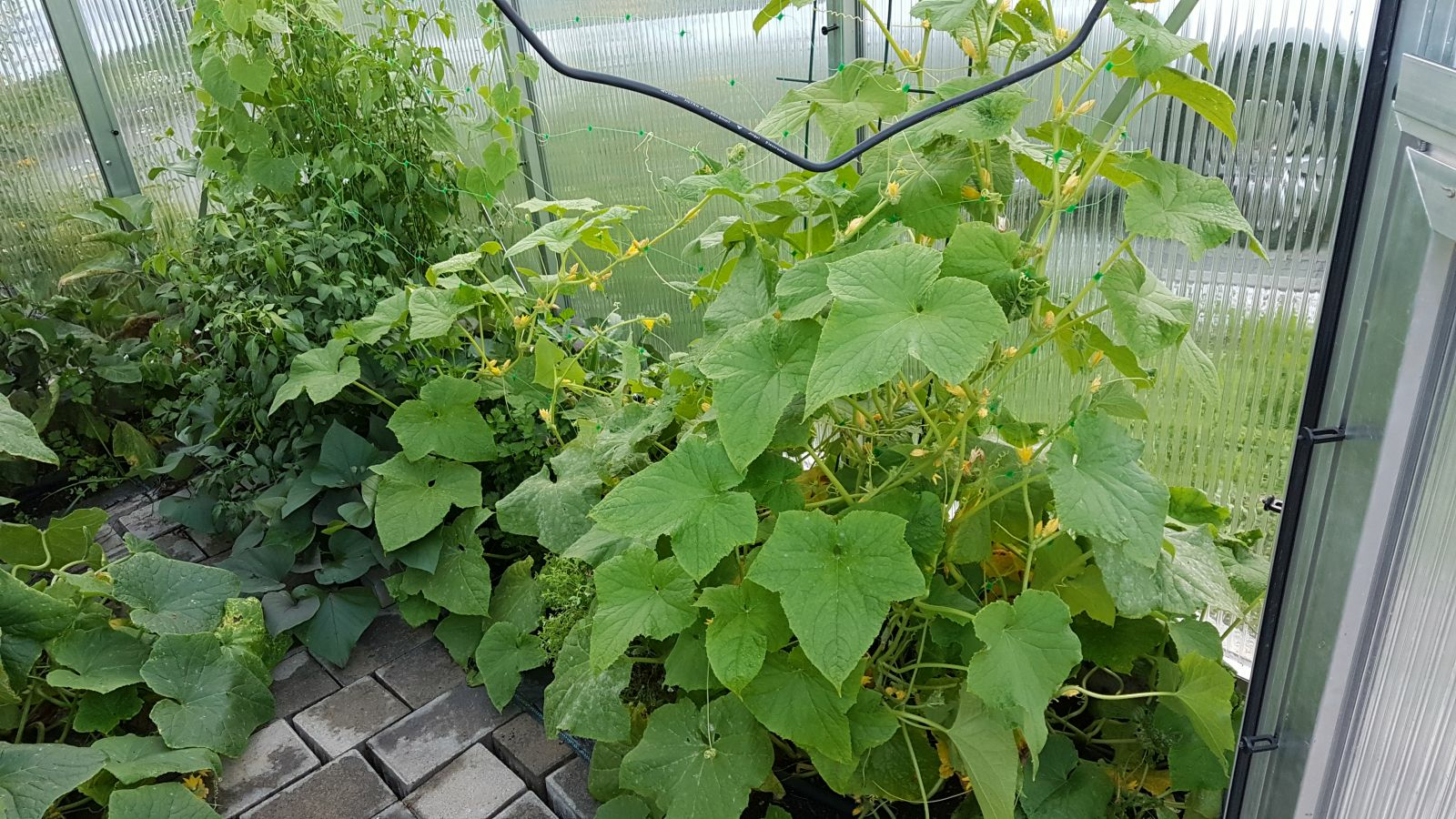
Vegetable Garden With Greenhouse: How to Use Greenhouse Effect
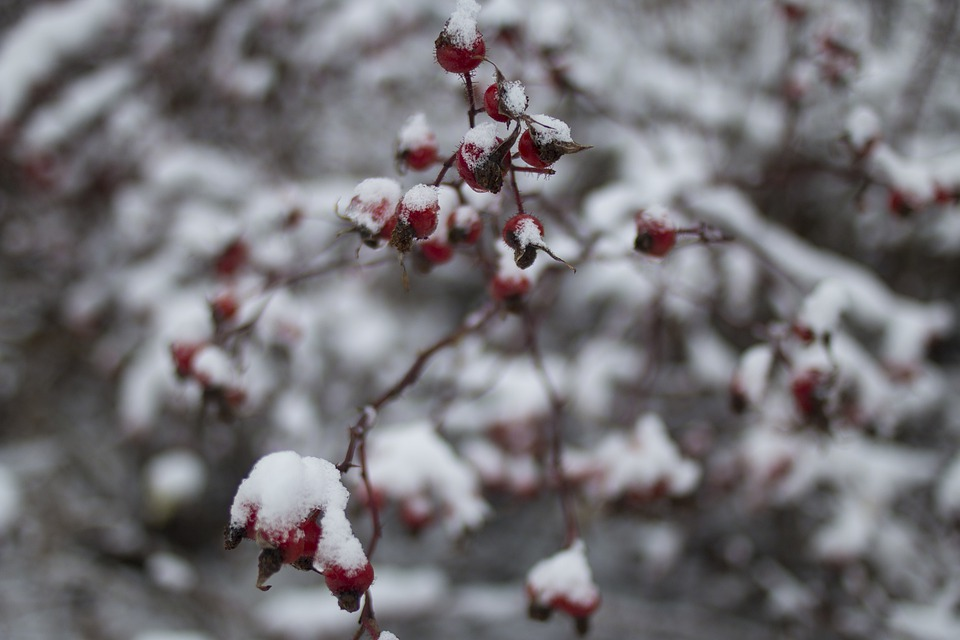
Winterizing Beds and the Garden: How to Do It